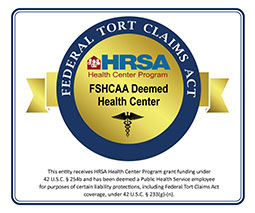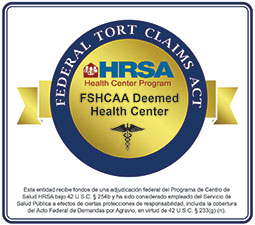Take THREE Actions to Fight the Flu

Kare Lyche, MD, Family Physician
Post written by Kare Lyche, MD, Family Physician
Health Partnership Clinic
Influenza (flu) is a serious contagious disease that can lead to hospitalization and even death. The flu virus is among the most commonly transmitted because it can be airborne.
With a small cough or sneeze, or even the sharing of utensils during a meal, it can already be transferred from one person to another.
Did you know that adults are contagious one to two days before getting symptoms and up to seven days after becoming ill? This means that you can spread the flu virus before you even know you are infected.
There are a few simple ways to prevent the spread of flu and protect yourself and your family and even, your coworkers. The Centers for Disease Control and Prevention (CDC) urges individuals to take the following actions to protect yourself and others from the flu.
Step 1
Take time to get a flu vaccine.
Be sure you and your family get vaccinated! The CDC recommends a yearly flu vaccine as the first and most important step in protecting against flu viruses.
While there are many different flu viruses, a flu vaccine protects against the viruses that research suggests will be most common. Flu vaccination can reduce flu illnesses, doctors’ visits and missed work and school due to flu, as well as prevent flu-related hospitalizations.
 Everyone six months of age and older should get a flu vaccine every year before flu activity begins in their community. CDC recommends getting vaccinated by the end of October.
Everyone six months of age and older should get a flu vaccine every year before flu activity begins in their community. CDC recommends getting vaccinated by the end of October.
Vaccination of high-risk persons is especially important to decrease their risk of severe flu illness.
People at high risk of serious flu complications include young children, pregnant women, people with certain chronic health conditions like asthma, diabetes or heart and lung disease and people 65 years and older.
Vaccination also is important for health care workers and other people who live with or care for high- risk people to keep from spreading flu to them.
Children younger than six months are at high risk of serious flu illness but are too young to be vaccinated. People who care for infants should be vaccinated instead.
Step 2
Take everyday preventive actions to help stop the spread of flu viruses.
Try to avoid close contact with sick people. While sick, limit contact with others as much as possible to keep from infecting them.
If you are sick with flu symptoms, CDC recommends that you stay home for at least 24 hours after your fever is gone except to get medical care or for other necessities. Remember…Your fever should be gone for 24 hours without the use of a fever-reducing medicine.
Other tips:
- Cover your nose and mouth with a tissue when you cough or sneeze. Throw the tissue in the trash after you use it.
- Wash your hands often with soap and water. If soap and water are not available, use an alcohol-based hand rub.
- Avoid touching your eyes, nose and mouth. Germs spread this way.
- Clean and disinfect surfaces and objects that may be contaminated with germs like the flu.
Step 3
Take antiviral drugs if your doctor prescribes them.
If you get the flu, antiviral drugs can be used to treat your illness. Antiviral drugs are different from antibiotics. They are prescription medicines (pills, liquid or an inhaled powder) and are not available over-the-counter.
Antiviral drugs can make illness milder and shorten the time you are sick. They may also prevent serious flu complications. For people with high-risk factors, treatment with an antiviral drug can mean the difference between having a milder illness versus a very serious illness that could result in a hospital stay.
Studies show that flu antiviral drugs work best for treatment when they are started within two days of getting sick, but starting them later can still be helpful, especially if the sick person has a high-risk factor or is very sick from the flu. Follow your doctor’s instructions for taking this drug.
Below are some common questions my patients have:
How do I know if I have the flu?
Flu symptoms include fever, cough, sore throat, runny or stuffy nose, body aches, headache, chills and fatigue. Some people also may have vomiting and diarrhea. People may be infected with the flu and have respiratory symptoms without a fever.
How does a flu shot work?
Flu vaccines cause antibodies to develop in the body about two weeks after vaccination. These antibodies provide protection against infection with the viruses that are in the vaccine.
Is the flu shot suitable for everyone?
The flu vaccine is not suitable for certain groups of people, such as those who have a severe allergy to chicken eggs. If you fall into this group, talk with your physician about a new flu vaccine option or other preventive measures.
What’s the difference between flu and cold symptoms?
Many people confuse the flu with colds.
Flu symptoms include:
- High temperature
- Cold sweats and shivers
- Headache
- Aching joints and limbs
- Fatigue, feeling exhausted
Both Flu and cold symptoms include:
- Runny/blocked nose
- Sore throat
- Cough
As flu is caused by a virus, antibiotics cannot help, unless the flu has led to another illness caused by bacteria. Antivirals, such as oseltamivir (Tamiflu) and zanamivir (Relenza), may be prescribed in some circumstances.
Pain relievers, such as Ibuprofen and aspirin, can alleviate some of the symptoms, such as headaches and body pains. Be sure to talk with your medical provider before taking over-the-counter medicines. Some medications, such as aspirin, should not be given to children under 12.
If I get the flu, what should I do?
It’s recommended that individuals with the flu:
- Stay at home
- Avoid contact with other people where possible
- Keep warm and rest
- Consume plenty of liquids
- Avoid alcohol
- Stop smoking
- Eat if possible
It is a good idea for people who live alone to tell a relative, friend, or neighbor that they have the flu and make sure someone can check in on them.
How can I prevent the spread of cold and flu germs?
Prevention is key. Here are four simple ways:
- Avoid Contact
- If you do find yourself getting sick, stay home from work. A person is contagious a full day before symptoms show up and up to seven days after becoming sick. The CDC recommends that a person who catches the flu or a flu-like infection stays home for at least 24 hours after their fever is gone.
- Wash your Hands
- The flu is spread through droplets when an infected person coughs, sneezes, or even talks. Washing your hands frequently, especially before eating can also help prevent the spread of cold and flu viruses.
- Germs are commonly transmitted hand-to-mouth when the person is eating, biting their nails, or mindlessly touching their lips. If frequent hand-washing isn’t an option, using hand-sanitizer can be a useful backup method. Most viruses enter the body through the hands into the mouth. If you haven’t recently washed your hands, it is best to try and keep your hands away from your face.
- Cover your Mouth
- If you must cough or sneeze, be sure to cover your nose or mouth. It is recommended that you cover your nose or mouth with a tissue or into your arm, but if one is not available, immediately wash your hands with warm water and soap after sneezing or coughing.
- Keep Surfaces Clean
- Whether you, your family or coworkers are sick or well, it is a good practice to clean and disinfect shared surfaces often to prevent the speed of infection. That includes toys, countertops, doorknobs, TV remotes, phones, keyboards, etc.
At HPC, we provide flu shots to our patients. Be sure to talk with your provider to find out what’s right for you! To schedule an appointment to see a provider, call 913-648-2266.






